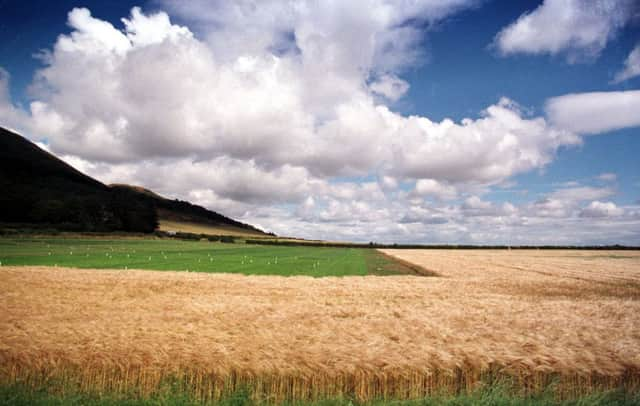Was the Scottish Government right to ban GM crops?


Proponents of genetically-modified (GM) crops claim they could lead to a more sustainable agricultural industry and that further research is vital to fully understand their potential benefits.
But critics believe such crops could have a harmful impact on the environment and leave the industry in the hands of a few large conglomerates.
Advertisement
Hide AdAdvertisement
Hide AdThe issue came to a head in August when rural affairs secretary Richard Lochhead announced that the Scottish Government would not sanction future planting of GM crops.
A European Union ruling which came into force earlier this year allows member states and devolved administrations to restrict or ban the cultivation of genetically modified organisms within their territory.
The decision sparked a political row, with opposition parties, farmers’ unions and the Royal Society of Edinburgh claiming that the move was ‘anti-science’.
A majority of scientists believe that GM foods are safe and pose no threat to the public.
Ministers argue the decision was made to protect the country’s food and drink industry.
“The Scottish Government’s long-standing policy takes account of the potential wider social and economic ramifications that growing GM crops might have for Scotland,” a spokeswoman said.
“The decision affects GM crops that have either been approved or which are pending approval by Europe. Future applications for GM crop cultivation will be considered on a case-by-case basis.
“Food and drink is one of Scotland’s booming sectors, which is witnessing continued growth in domestic and export markets, without growing GM crops. It generated a record turnover of £14.3 billion in 2013, and a recent Bank of Scotland report forecasts an average turnover growth of 19 per cent by 2020, with many businesses highlighting the importance of Scottish provenance.”
Advertisement
Hide AdAdvertisement
Hide AdCatherine Brown, a Scottish food and drink writer and expert on the sector, welcomed the decision.
“While any doubt remains about the implications to the environment of contamination by GM crops, it’s a wise decision to remain opposed to this new technology,” she said.
“Scotland’s reputation as a primary food producer of outstanding quality must be protected.”
Northern Ireland has announced it will also implement a band on GM crops, but Westminister is unlikely to follow suit - meaning they could still be grown in England.
Scottish Conservative leader Ruth Davidson said her party would campaign to overturn the Scottish Government decision.
“This isn’t just about GM crops – it’s about the SNP’s whole approach to government,” she said.
“It’s already admitted it was not based on science, which shows in fact it’s about vote chasing and political calculation.
“There is a debate to be had about GM crops, but the Scottish Government has gone about it in entirely the wrong way.”
Advertisement
Hide AdAdvertisement
Hide AdThe Scottish Greens have supported the ban and believe it will help protect smaller suppliers from becoming reliant upon larger companies.
Lothian MSP Alison Johnstone said: “Not only would introducing GM crops to Scotland risk the health of our environment, it would mean effectively handing control over our food production to large agribusinesses like Monsanto.
“Big agribusinesses have spent decades promising that GM crops would benefit our society, but they have produced virtually no evidence to back up their claims. We do know, however, that GM crops are harmful to wildlife and agricultural diversity, and they may be harmful to humans too - many varieties are designed to rely on glyphosate, a herbicide that could cause cancer. There are simply too many risks and too few guaranteed benefits to justify a GM takeover in Scotland.
“Scotland neither wants or needs GM crops. Public opinion favours organically produced, clean food and drink, and our country has huge potential to develop more ecological and diverse forms of food production. Instead of letting big companies exploit our land for the benefit of their profit margins, we should focus on encouraging brilliant small Scottish producers develop and grow.”